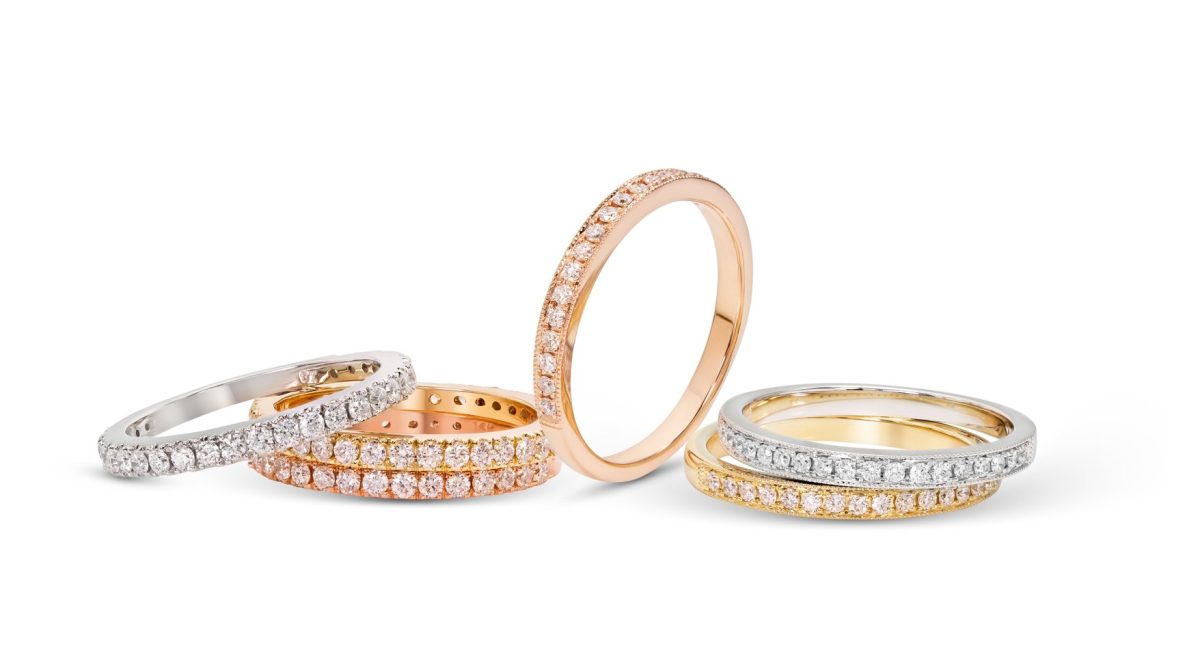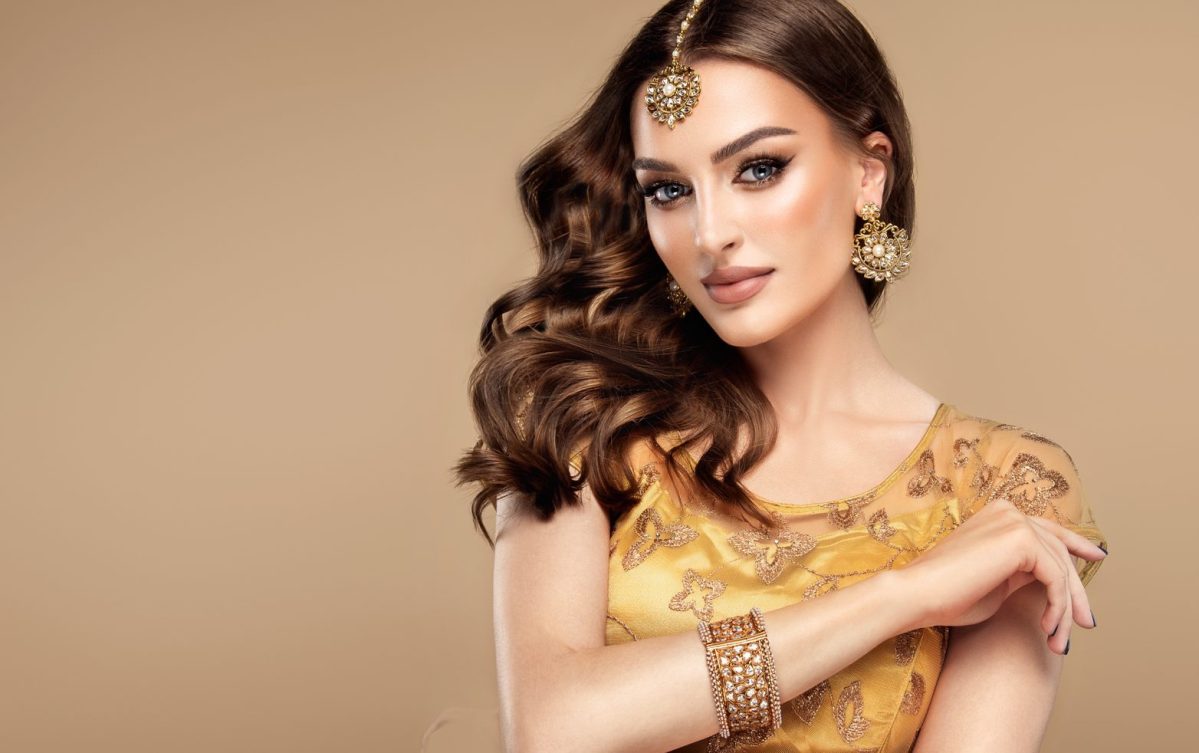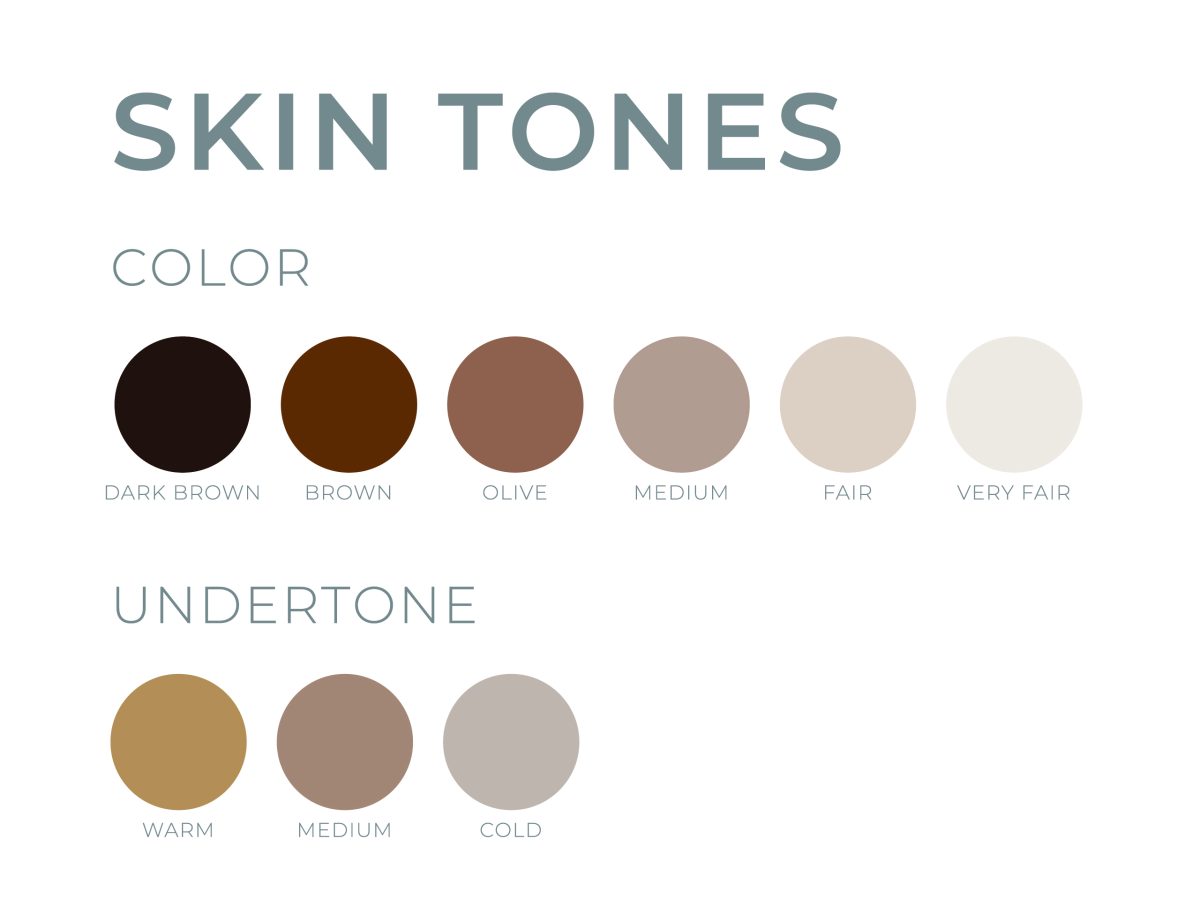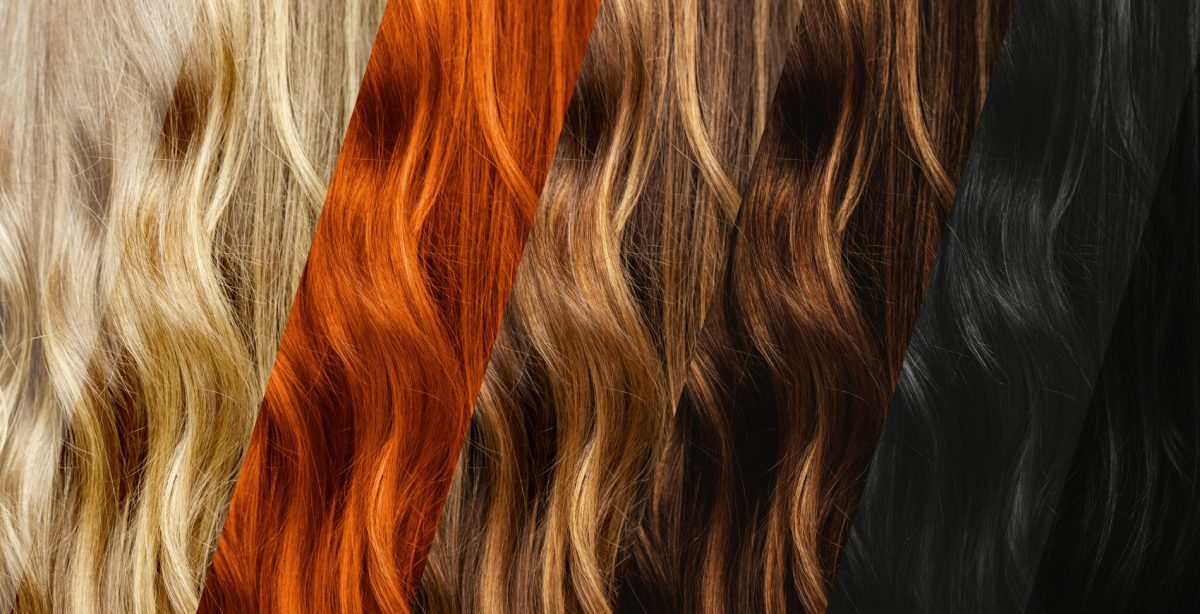You want to buy several pieces of jewelry. But you are not sure if silver or gold is best for you. Let us begin with the most critical question: do you prefer silver or gold?
Perhaps you have a priority in terms of appearance. However, if you want to purchase what looks best on you, you should really do some color analysis to figure out which material will best improve your natural beauty.
This post applies standards from seasonal color analysis to help you decide which type of color you are and if silver or gold jewelry is best for you.

The Basic Six Color Aspects

We really have to find your pure shading setting on every color aspect – these are your three primary color elements.
One of the three components will be your main color facet or the most essential part of your coloring. That implies your coloring will be at one of the color element’s extreme fringes.
Your main feature will be one of the six choices depending on 3 color aspects as follows:

- Cool or warm (hue)
- Bright or muted (chroma)
- Dark or light (value)
In this color aspect, you’ll want the most advanced form of a color. Even the moderate level will not look really great on you. For instance, if your central aspect is warm, balanced, and even neutral-warm shades will not work for you. Only the warmest hues will enhance your looks.
Your supplementary color element has a large impact on your coloring. In this aspect, your coloring would then fall between one of the spectrum’s extreme fringes and the centerline.
Your secondary component could only be one of the things that follow:
- neutral-cooling or neutral-warming (hue)
- medium-light or medium-dark (chroma)
You will obviously opt for one of the excessive ends of the scale in this aspect, but the most extreme form of a hue may be too much for you. For example, if your supplementary facet is medium-bright, the most infused and vivid colors will overwhelm you. Your best hues will be saturated (instead of muted) but not particularly bright or lively.
The third factor has little bearing on your coloring. Your coloring would be near to the balanced/central midpoint of the spectral range in this aspect.
Your third element will either be chroma or value, but not color.
To summarize, we intend to do two things:
- 1. Determine your natural coloring’s color settings
- 2. Compare these configurations to a color season with comparable settings
This color season would then feature colors that are most equivalent to your own and, therefore will compliment you.
Note
Keep in mind that while we will examine each color aspect independently, they are all interrelated.
Warm colors are gentle by nature, so even cool colors are dark by nature. As a result, if your natural coloring is lighter and warmer, it would be brighter as well. As a warm color is darkened, it becomes much more muted. As a result, if you are darker and warmer, you also tend to be more muted.
Likewise, if your natural coloring is darker and cooler, it would be brighter. A cool color becomes more muted when it is lightened. As a result, if you are lighter and cooler, you will naturally be more subdued.
To prevent confusion, bear that in mind as you go over the analysis.
Use The Seasonal Color Analysis To Find Your Best Match
Cool color types, on the flip side, have a dark blue or cool undertone to their eyes, skin, and hair. Their skin tone or complexion tone might be more green in color or have blue undercurrents. Their color can vary from pale skinned to ash blonde brown to deep black. They might have bright green, gray, back, or deep brown eyes.
The Differences Between Cool and Warm Color Types

A yellow undertone can be found in the skin of people who have a warm color type. Their hair might be copper, bronze, or gold in color. Their eyes might also be rich helen in hue or even have golden splodges in the iris. If two or three of the aspects (hair, skin, and eyes) are warm, they are probably a warm color type.

Cool color types, on the flip side, would have a dark blue or cool undertone to their eyes, skin, and hair. Their pale skin or skin texture might be more olive or even have blue overtones. Their skin tone can range from pale blonde to ash blonde brown to deep black. Their eyes can be black, blue, deep brown, bright green, or gray.
Gold Vs. Silver On The Various Color Types
It all comes down to consonance when it comes to clothing and jewelry. Warm colors tend to look a lot better on the warm fall and spring types. Colors with much more yellow undertones, such as rust or olive green, are appropriate. As a result, gold enhances their appearance. Silver has the ability to wash them out and make them more likely worn.
Cool colors with an underlying turquoise tone golden light, such as lilac and gray, look way better on the cooler color types, such as summer and winter. Instead of gold, which may showcase discoloration in their faces, silver improves their characteristics.
How To Define Your Color Type?
There are 3 basic steps to determine if gold or silver looks better on you as follows:
Decide your skin’s undertone

Is the undertone of your skin cool or warm? Blue streaks generally show a cool undercurrent. Green veins, on the other hand, imply a warmer undercurrent.
If this isn’t clear, you could also experiment with clothing. Do you prefer gray or white shirts? Then you are more likely to have a cool undercurrent. Beige or off-white shirts tend to look better on people with warm undertones.
You could also press a piece of off-white or white paper against your face. You have a cool undercurrent if your face looks blue or pink. You will have a warm undertone if you have a yellowish complexion. In addition, the spring and fall color types are highly likely to get imperfections in the summer.
Still unsure? It’s possible that you have a neutral undertone. To learn more, check out this excellent resource.
Take into account your natural hair color

Brown, ash blonde, and gray hair are more suited to a colder personality. Rich hair tones (such as chestnut brown, red, and golden blonde) frequently have to underpin warm colorants like orange, red, yellow, or gold.
There are a few tips that you can use if you are still not sure. Cold winter types frequently have a stark contrast among their skin and hair color. In the summer, the warm fall and spring types often have blonde or golden highlights, while the cold summer types might have sun-bleached edges.
Do you have a lot of gray hair? Don’t feel nervous, and it has no effect on your personality. You can use the same analysis to determine your prior hair color. However, you can now examine your hair to see whether it has more cool or warm tones.
Take A Closer Look At Your Eyes
Whereas your hair color and tan might alter over the seasons and years, your eyes would never alter. As a result, this is a dependable method of deciding your coloring. Check to see whether they are more of the cool or warm type. Start by using the seasonal color analysis, and you can determine whether gold or silver looks way better on you.
In general, seasonal color analysis is a useful tool for determining what colors work best for you. It takes into account your general coloring. This consists of your skin undertone, eye color, and hair color. It categorizes people into four groups depending on the colors associated with the seasons.
Conclusion
So, now you can answer the question if you look best on gold or silver.
In a nutshell, you are a warm-tone person if you have the following features. If gold looks a lot better on you, you are a warm tone person who prefers to wear earthy, golden, rich, and peachy colors. Off-white, beige, grass, lime, gray, orange, ivory, and mango are some other colors that could be used.
You will be a warm-tone person if you find yourself as follows. You are a cooler tone if you find you look best on silver. Colors such as rose and light pink, baby blue, pastel green, almost all shades of pink, and emerald green will draw attention to your facial characteristics.

